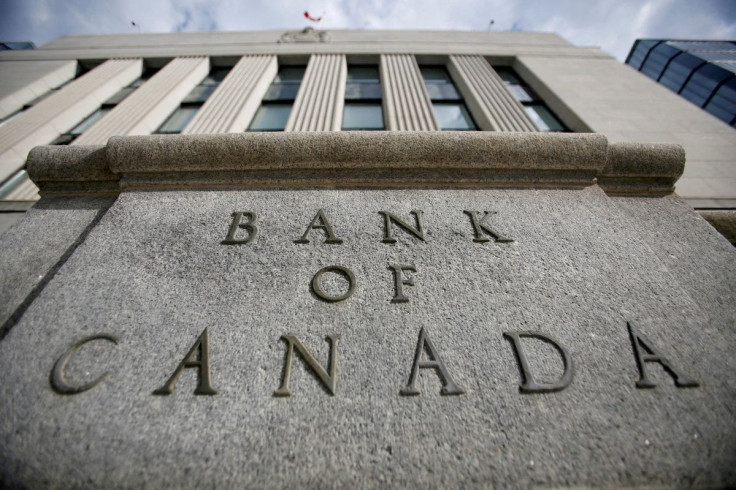Bank Of Canada Seen Set For Jumbo 75-bp Rate Hike As Inflation Bites

The Bank of Canada on Wednesday is expected to make its largest interest-rate increase since the late 1990s as the central bank hastens tightening to tackle an overheating economy and runaway inflation.
Canada's largest banks all foresee a 75-basis-point increase to 2.25% from 1.5% when the central bank releases its rate decision at 10 a.m. ET (1400 GMT), after the U.S. Federal Reserve opened the door with its own jumbo-sized hike last month.
"The market has priced in three-quarters-of-a-point increase because that's what the U.S. Federal Reserve delivered," said Craig Alexander, chief economist at Deloitte Canada.
Senior Deputy Governor Carolyn Rogers said last month that high inflation was "keeping us up at night" and did not rule out the possibility of a very rare 75-bp hike.
The Bank of Canada hiked by 50 bp in April and June. It last increased by more than 50 bp in August 1998, when it hiked by a full percentage point to defend the Canadian dollar.
The central bank faces a different threat today: galloping inflation. Prices are rising at the fastest pace in nearly 40 years and expected to go higher before easing off. The bank will also update its inflation forecasts Wednesday.
Governor Tiff Macklem has made clear the policy interest rate needs to move into the neutral range - 2% to 3% - in order to stop adding stimulus to the already overheated economy and to slow inflation.
That has some strategists eyeing the possibility of an even more aggressive move, with RBC Capital Markets assigning a 25% probability of a 100-bp hike.
"We're sitting at record low unemployment and very high inflation. There's no reason, right now, for interest rates to be below that long-run neutral range," said Nathan Janzen, senior economist at RBC Capital Markets.
"We're leaning towards a 75 basis points hike being the most likely," he added. "But, by the same logic, 100 basis points would still only get you into the midpoint of their neutral range."
Macklem, who just recovered from COVID-19, participated in the rate decision via remote link, the central bank said.
Economists polled by Reuters expect Canada's policy interest rate to hit 3.25% by year-end, up from 0.25% at the start of 2022.
© Copyright Thomson Reuters 2024. All rights reserved.





















